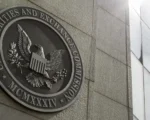SEC Asserts Existing Regulations Are Adequate for Cryptocurrency Oversight, Challenging Coinbase’s Claims
Coinbase Challenges SEC to Establish Clear Rules for Cryptocurrency
In a landmark case, Coinbase and the U.S. Securities and Exchange Commission (SEC) engaged in a legal battle in a federal appeals court in Philadelphia on Monday. This confrontation underscores the ongoing tension between cryptocurrency exchanges and regulatory bodies, particularly regarding the framework governing digital assets. Coinbase, the largest cryptocurrency exchange in the United States, initiated the lawsuit against the SEC to compel the agency to address its request for clearer rules on digital assets.
The legal dispute began when Coinbase submitted a petition for rulemaking to the SEC in 2022. In this petition, the exchange sought clarity on the conditions under which a digital asset is classified as a security. Coinbase argues that the lack of explicit guidelines has created an ambiguous environment for cryptocurrency businesses, leading to significant compliance challenges. The exchange contends that the SEC’s failure to act has stifled innovation within the crypto sector, preventing companies from understanding their regulatory obligations.
During the court proceedings, Coinbase’s legal team emphasized the necessity for a comprehensive market structure framework that accommodates the unique characteristics of cryptocurrencies. They argued that without such clarity, both companies and consumers face heightened risks and uncertainty. Furthermore, Coinbase claims that the SEC’s existing approach to regulation is insufficient for the rapidly evolving digital asset landscape, potentially leading to unnecessary enforcement actions against compliant businesses.

On the other hand, the SEC defended its position by asserting that current regulations are adequate for overseeing the cryptocurrency industry. The agency’s lawyer contended that the SEC is not mandated to create new rules specific to digital assets and that existing securities laws should suffice for regulating these markets. This assertion highlights the SEC’s belief that the fundamental principles of investor protection and market integrity are already covered under current laws, which could apply to cryptocurrencies as well.
The outcome of this case could have significant implications for the future of cryptocurrency regulation in the United States. Should the court side with Coinbase, it may compel the SEC to develop clearer guidelines, potentially fostering a more conducive environment for innovation in the crypto sector. Conversely, a ruling favoring the SEC could reinforce the agency’s existing regulatory framework, leading to continued uncertainty for cryptocurrency exchanges and their users.
As the crypto landscape continues to evolve, this legal battle represents a critical juncture in the ongoing discussion about how best to regulate digital assets. The outcome will likely influence not only Coinbase but the broader cryptocurrency ecosystem, shaping how companies navigate compliance and regulatory expectations in the years to come. The court’s decision could set a precedent that either encourages or stifles innovation in the burgeoning digital economy.

















